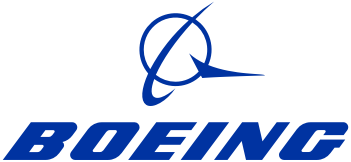Understanding Change Management Courses
Change Management Courses introduce learners to structured methods for guiding transformation within organisations. These educational programs help participants understand the psychology of change, strengthen motivation, and build the skills needed to manage improvement initiatives successfully.
What Are Change Management Courses?
Change Management Courses are essential for anyone wanting to learn how to manage organisational change effectively. They cover communication strategies, leadership approaches, and models used by professionals worldwide.
Why Study Change Management Courses?
This course supports learners in developing confidence to plan, implement, and evaluate transformation projects, ensuring that individuals and teams adapt smoothly to new environments.
Online Change Management Courses
Online Change Management Courses provide flexible study options for professionals and students alike. Through digitalisation and e-learning platforms, individuals can gain valuable insights without interrupting their daily responsibilities.
Benefits Of Online Learning
These online courses allow learners to manage their time efficiently while building practical knowledge in organisational change, stakeholder engagement, and agile methods.
Change Management Training And Workshops
Change Management Courses often include interactive training sessions and workshops that focus on leadership, risk management, and communication. Participants learn to overcome resistance and apply structured approaches to real-world challenges.
Change Management Courses Key Skills Developed
Training modules cover agile frameworks, risk analysis, and stakeholder collaboration, helping professionals become responsible and effective change managers.
Change Leadership Courses
Change Management Courses also complement change leadership courses, which emphasise motivating people and managing emotions during transformation. Learners explore how leadership supports the success of change initiatives.
Difference Between Management And Leadership
While Change Management Courses focus on process and structure, leadership courses address the human and motivational aspects that encourage people to embrace new ways of working.
Seminars And Continuing Professional Development
Seminars linked to Change Management Courses provide opportunities for continuing professional development. These sessions often align with APMG International guidelines and highlight current best practices in managing change.
Importance Of CPD
Continuing professional development ensures professionals remain competent and informed about agile methods, digitalisation, and risk management trends.
Courses For Change Management Professionals
Courses for change management professionals combine academic knowledge with practical learning. They develop analytical thinking and leadership skills essential for managing organisational improvement.
Who Can Benefit?
These programs suit managers, consultants, and team leaders seeking to enhance their ability to manage change successfully and guide teams toward achievement.
Overcoming Resistance To Change
Change Management Courses teach strategies for overcoming resistance and maintaining progress. Effective communication, collaboration, and recognition are key to implementing sustainable change.
- Encourage open discussion to reduce uncertainty.
- Clarify goals and expected results to motivate teams.
- Recognise achievement to reinforce improvement.






